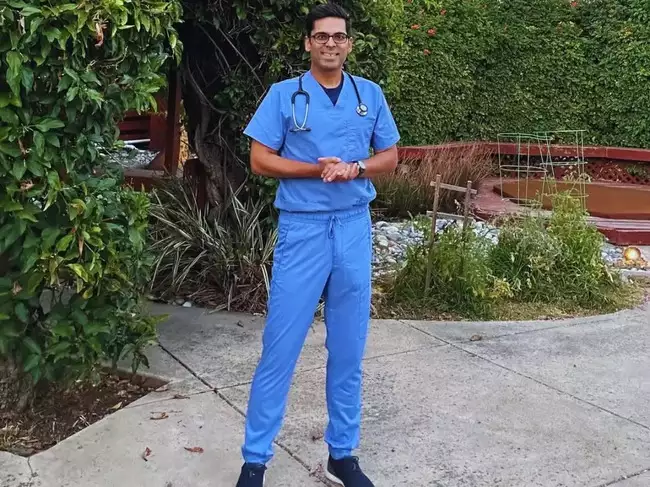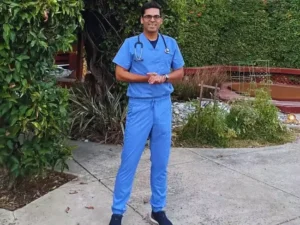
How to DETOX your FATTY liver without medications ⁉️Harvard Trained Liver Specialist Explains
- March 26, 2025
- 11:46 am
Summary
Non-alcoholic fatty liver disease (NAFLD) is one of the most common liver disorders worldwide, often linked to lifestyle and diet. The good news: with consistent dietary changes, weight management, and targeted nutrients, fatty liver can often be reversed before it progresses into scarring or cirrhosis.
Dr. Sethi, a liver specialist, explains the role of diet, nutrients, and lifestyle in managing and improving fatty liver health.
Table of Contents
- What is NAFLD?
- Causes and Risk Factors
- Weight Loss and Lifestyle Targets
- Foods and Nutrients to Avoid
- Saturated fats and seed oils
- Refined carbs and sugary beverages
- Alcohol
- Foods and Nutrients to Add
- Coffee
- Vitamin E
- Vitamin D
- Plant-rich, Mediterranean-style diet
- Vegetarian and Plant-Based Options
- Conclusion
- Key Takeaways
What is NAFLD?
NAFLD is defined as fat accumulation in the liver in people who consume little or no alcohol. It is primarily associated with insulin resistance and may present with mild, nonspecific symptoms such as:
- Persistent fatigue
- Dull discomfort in the right upper abdomen
If untreated, NAFLD can progress to inflammation, fibrosis, and cirrhosis.
Causes and Risk Factors
- Excess calorie intake, especially from processed foods and sugary drinks.
- High intake of saturated fats and seed oils.
- Insulin resistance leading to fat buildup in the liver.
- Vitamin D deficiency, which correlates with higher NAFLD risk.
Weight Loss and Lifestyle Targets
- Aim for 0.5–1 kg weight loss per week.
- Target at least 10% overall body weight loss for significant improvement.
- Avoid alcohol completely, as even small amounts worsen fatty liver.
Foods and Nutrients to Avoid
Saturated Fats and Seed Oils
Diets rich in saturated fats and industrial seed oils (e.g., soybean, sunflower, corn oils) increase the risk of fatty liver.
Refined Carbohydrates and Sugary Beverages
Sugary sodas, packaged juices, and refined grains raise blood sugar and contribute to liver fat accumulation.
Alcohol
Even moderate drinking accelerates progression of fatty liver and must be avoided.
Foods and Nutrients to Add
Coffee
- Associated with a lower risk of cirrhosis.
- Can reduce severity of fatty liver.
- Recommended intake: 1–2 cups per day (avoid within 6 hours of bedtime).
Vitamin E
- Powerful antioxidant that reduces oxidative stress and inflammation.
- Shown to improve fibrosis when used at 800 IU/day (under medical supervision).
- Food sources: nuts, seeds, green leafy vegetables.
Vitamin D
- Deficiency is linked to higher risk of NAFLD.
- Supplementation may improve liver function.
- Food sources: fatty fish, mushrooms.
Plant-Rich, Mediterranean-Style Diet
- Focus on fruits, vegetables, whole grains, legumes, nuts, and olive oil.
- Rich in fiber and antioxidants, supporting liver health and reducing metabolic risks.
- Strong evidence for reducing severity of fatty liver.
Vegetarian and Plant-Based Options
- You do not need to eat meat to support liver health.
- Vegetarians should emphasize tofu, lentils, chickpeas, beans, and nuts as protein sources.
- The goal is variety and balance, not strict exclusion.
Conclusion
NAFLD can often be improved—or even reversed—through simple but consistent dietary changes. Avoiding alcohol, excess sugar, and processed foods, while embracing a plant-rich, Mediterranean-style diet, provides the foundation for liver recovery.
Combined with gradual weight loss and attention to vitamins like E and D, these steps are often more powerful than medications in protecting long-term liver health.
Key Takeaways
- Weight loss of 10% can reverse fatty liver progression.
- Avoid: alcohol, sugary drinks, processed carbs, saturated fats, seed oils.
- Coffee in moderation (1–2 cups/day) protects the liver.
- Vitamin E & D (from food or supplements) support liver repair.
- Mediterranean diet rich in plants, fiber, and antioxidants is the gold standard.
- Vegetarians can thrive with plant proteins—meat is not required.
Raw Transcript
[00:00] Today we are discussing non-alcoholic fatty liver disease and the impact of diet on this condition. If you are new to my channel, hi I'm Dr. Sethi or you can call me Dr. Sethi. I am a liver specialist. We will talk about various diets and beverages which have been shown to reverse fatty liver disease.
[00:20] disease is characterized by fat accumulation in the liver, primarily linked to insulin resistance. It can present with vague symptoms like fatigue and dull discomfort in the right upper abdomen. The standard treatment for fatty liver is weight loss, aiming for a reduction of 0.5 to 1 kilogramme.
[00:40] kilogram per week with at least a 10% overall body weight loss. It is also essential to avoid alcohol. Research indicates that diets high in saturated fats and certain seed oils are linked to a higher risk of fatty liver. Increased simple carbs consumption.
[01:00] consumption also correlates with a greater likelihood of developing this condition. Coffee consumption has been associated with a lower risk of cirrhosis and can even reduce the severity of fatty liver. I generally recommend to limit the coffee to 1 to 2 cups a day with the last cup at least 6 hours before bedtime to avoid
[01:20] interruptions in sleep. Vitamin E is an antioxidant and has shown potential in reducing oxidative stress, inflammation and fibrosis in fatty liver, particularly when used at 800 international units during hepatic inflammation. Good sources of vitamin E would be nuts, seeds, and
[01:40] and green leafy veggies. Vitamin D deficiency has been correlated with higher incidence of fatty liver. When vitamin D levels decrease, the risk of fatty liver goes up and the studies suggest that vitamin D supplementation can improve liver function. The good diet sources of vitamin D would be fatty fish and
[02:00] and mushrooms. Plant-rich diets can lower the risk of fatty liver. Healthier options include fruits, veggies, whole grains, while sugary beverages and refined grains are linked to high risk. The Mediterranean diet, which is high in fiber and antioxidants, has been shown to decrease fatty liver severity and improve.
[02:20] metabolic conditions. I do not recommend ketogenic diets to my patients with fatty liver due to mixed evidence regarding the effects on liver health. Instead, I advocate for plant-rich diets including mediterranean diet which are both beneficial. You don't need to become vegetarian or vegan to support liver health. Just focus on liver.
[02:40] focus on incorporating plenty of plant-based foods. However, if you are a vegetarian, you do not need to start eating meats. Just make sure to include plenty of good protein sources like tofu and chickpeas. I hope you found this information helpful. Like and subscribe and I will see you again next week.

